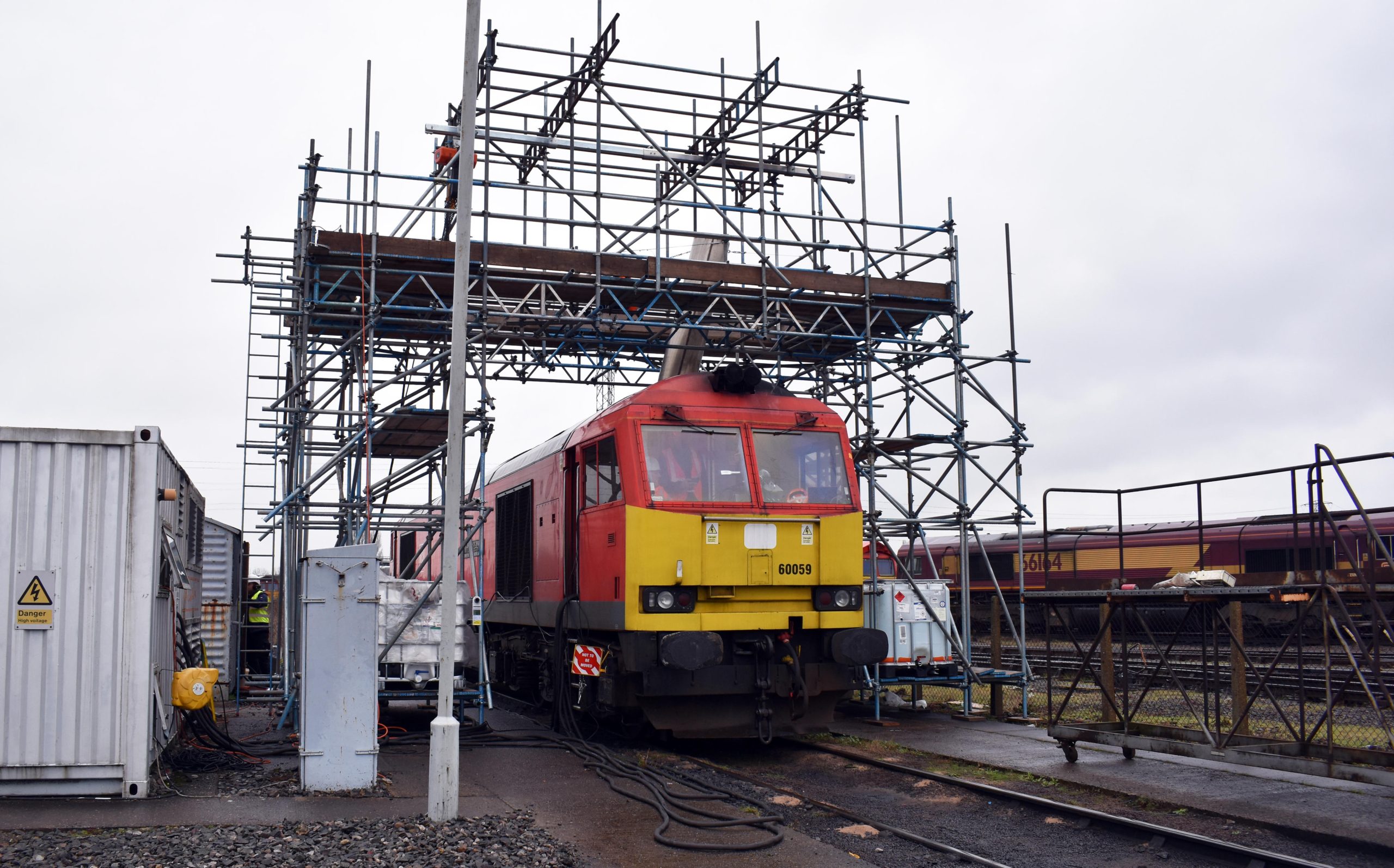DB Cargo tests green fuel to replace diesel in UK locomotives

DB Cargo and its British subsidiary, DB Cargo UK, have carried out tests to operate a Class 60 locomotive fuelled with Hydrotreated Vegetable Oil (HVO) fuel instead of diesel. HVO can in fact be used as a replacement fuel for diesel without the need to add new or different components to the locomotive.
In other words, locomotives currently running on diesel may start running on HVO, speeding up the process of reducing CO2 emissions in the rail sector. HVO causes around 90 per cent fewer greenhouse gas emissions. The tests were carried out at the Traction Maintenance Depot (TMD) in Toton, in central England. The tests carried out, as DB Cargo UK specified were load bank tests. This type of test is necessary to ensure that the power supplied, HVO in this case, is sufficient to traction a locomotive.
Using HVO instead of diesel to fuel locomotives is possible because the two fuels are quite similar to each other. The main advantage when it comes to HVO is that it can be produced by processing renewable waste lipids such as vegetable oil, tallow, and used cooking oil. Burning 1,000 litres of HVO will produce 195kg of CO2, whereas 1,000 litres of diesel will produce around 2,700 kg of CO2.
A comparative test to assess HVO potential
The tests consisted of a comparison of emissions made with a Class 60 locomotive running on traditional diesel and then on HVO. The locomotive was therefore filled up with red diesel and connected to the Toton TMD Load Bank facility to test its performance. “To accurately monitor exhaust gas emissions at each power position from Idle to Full Load, a purpose-built exhaust extension tube was fitted to the locomotive to calm the exhaust gases”, DB Cargo UK specified.

After the first tests with diesel were run, the locomotive was drained and refuelled with HVO. As DB Cargo UK stated, the purpose of these tests is to assess the potential of HVO as an alternative duel. In both instances, the emissions of nitrogen oxide, carbon monoxide, carbon dioxide, hydrocarbons, and particle mass were measured twice in a standardised measuring cycle at three load points.
Not the first example of HVO locomotives
Introducing alternative fuels is one of the main challenges in the rail industry. DB Cargo UK is not the first company to explore the possibility of implementing HVO as a fuel for locomotives. At the beginning of March, the German port of Bremerhaven started running its shunting locomotives solely on HVO. DB Cargo is involved in this project with Eisenbahnen und Verkehrsbetriebe Elbe-Weser, and FLEX Bahndienstleistungen, which together use 15 locomotives in the port.
Also read:





Railways, now for proving a high quality, vital, part of society and of multimodal supply chains, decisively has to out all risks of disturbings – from infrastructure!
Accordingly, at the safest and most energy effective on shore mode, now diesel or not, is not biggest issue.
(Catastrophe, at Fukushima, was a direct result of an electric supply of a vital function, the cooling pumps were not sustainably, redundantly, supplied – with el…)